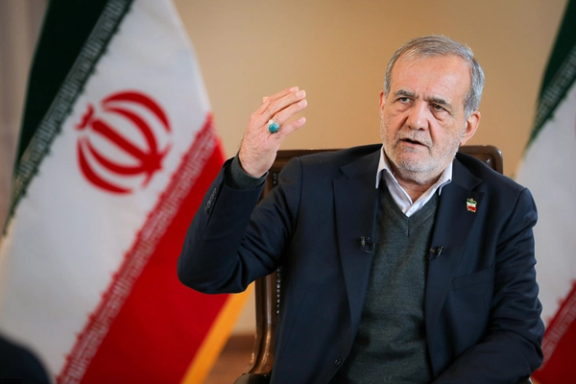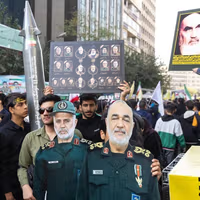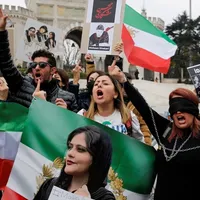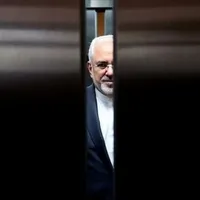Prisoner Exchange Between US, Iran Anticipated Early Next Week

A prisoner swap between the US and Iran is set to happen next week, possibly on September 18, on the eve of the United Nations General Assembly meeting in New York.

A prisoner swap between the US and Iran is set to happen next week, possibly on September 18, on the eve of the United Nations General Assembly meeting in New York.
The exchange is viewed as a preliminary step towards initiating fresh discussions aimed at reinstating limitations on Iran's nuclear program, reported Bloomberg.
As part of the agreement, the United States is also allowing Iran to access $6 billion in previously frozen funds held in South Korea.
The move by President Joe Biden's administration has drawn criticism, with some arguing that it may encourage further hostage-taking incidents.
In response, National Security Council spokeswoman Adrienne Watson emphasized that the primary objective is the release of five Americans who are “wrongfully” detained, emphasizing that this remains an ongoing and sensitive process. She clarified that no individuals will be transferred into US custody this week.
The Biden administration has refuted Iran's assertions that there will be no restrictions on the $6 billion in oil sales proceeds, asserting that the funds are earmarked exclusively for humanitarian purposes.
In support of the pending prisoner swap involving five Americans and five Iranians, Secretary of State Antony Blinken has informed Congress about a waiver ensuring that German, Irish, Qatari, South Korean, and Swiss banks can facilitate the transfer of the $6 billion from South Korea without violating US sanctions.
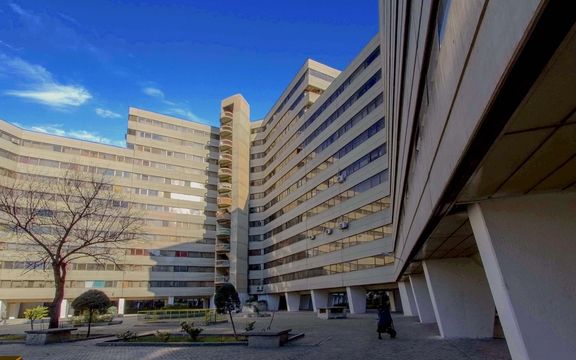
Ekbatan, in western Tehran, known for its resilience during last year's protests, is facing increased security measures to prevent fresh unrest on the anniversary.
Security forces and their plainclothes agents made their initial appearance in Ekbatan last week. They have already established checkpoints within the extensive middle-class apartment complex and have stationed special forces on motorcycles at various locations in and around the compound, including outside a mega mall and a hospital.
In preparation for the upcoming anniversary of Mahsa (Jina) Amini's death in custody of the morality police on September 16, 2022, residents have already begun nighttime chants from their windows. Slogans such as "Down with Khamenei," "Down with the child-killing regime," and "We will persist until the regime collapses, despite poverty, corruption, and high living costs," have echoed through the neighborhood in recent days.
“The sound of many people chanting echoed in the space between the apartment blocks and really scared the security forces. On several occasions they shot pellets and even live bullets indiscriminately at windows to stop people chanting,” Tara, a twenty-five-year-old resident told Iran International in an online chat. “It didn’t work. We returned and gave them more nightmares every night.”
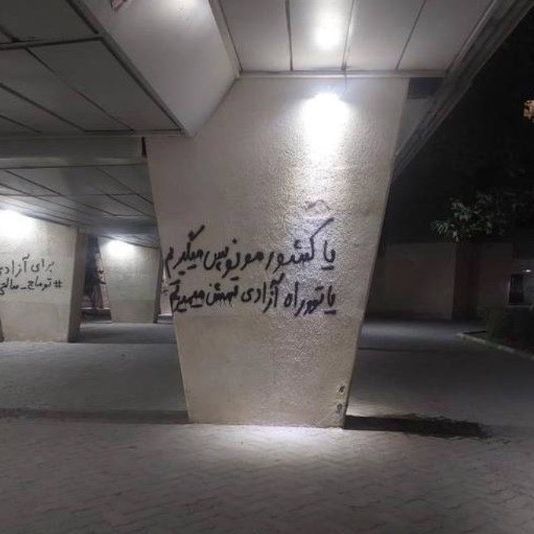
“Ekbatan was more active than other neighborhoods in Tehran because its structure and architecture made it difficult for security forces to control. Additionally, the residents’ community was and is much more tightly knit than in other neighborhoods,” Ashkan, a young man who manages Ekbatan protesters very popular Twitter, Telegram, and Instagram accounts told Iran International. “However, they have been familiarizing themselves with the terrain and become more dangerous,” he added.
Eight young men from Ekbatan who were accused of killing a member of the Basij militia during last year’s protests are still in prison and under great psychological and physical pressure to confess to the allegations that they all deny. “Just recently, they were moved from Rajai-Shahr prison to Ghezel Hesar,” Ashkan said. “They are still awaiting trial and are in very bad shape psychologically.”

Protesters in Ekbatan often marched under the blocks at night and escaped into the vast green spaces when security forces raided them. They took refuge in one of the many entrances of the blocks, or hid in the apartments of the sympathetic residents who often left their doors open for them.
The five square-kilometer complex, with a population of 45,000 has over 15,500 apartments in 33 blocks built on wide columns. The columns under the blocks are a blank canvas for protesters to spray paint anti-regime graffiti. Ordered by security forces, the management of the blocks ensures that they quickly cover the graffiti with paint, but before long, more graffiti appears on the columns.
Complaining about the many disputes among expatriate groups over the leadership of the movement, Ashkan said protesters could have achieved much more if these disputes had not slowed down the movement. “This is a lengthy process, but anything can suddenly trigger massive protests again like Mahsa’s killing did last year,” he said but declined to comment on his own leadership preferences.
“I was personally very moved last year and became more determined when I saw the video showing Majidreza Rahnavard fighting so bravely for his rights in Mashhad, which is dominated by Basijis and corrupt hardliners. He was really fearless and fought like a hero," Ashkan said.
Rahnavard, 23, was the first of the seven young men executed in public for his involvement in the protests and the alleged stabbing of two Basijis in November 2022. He was hanged in public on December 12.
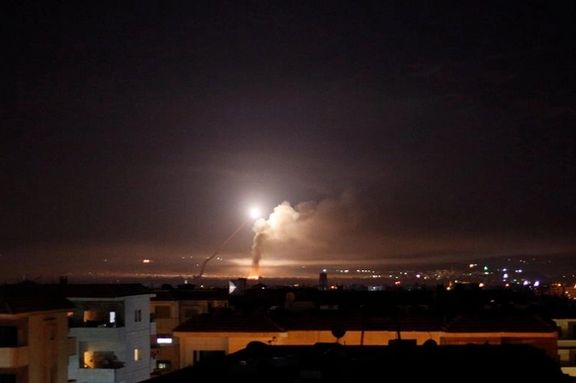
Israeli airstrikes on Wednesday killed two Syrian soldiers and injured six more, according to state media, citing a military source.
The source detailed the attack originating from the Mediterranean Sea and targeting Syrian air defense installations in Tartus on the West coast.
"At exactly 17:22 (14:22 GMT) this afternoon, the Israeli enemy carried out strikes," stated the official news agency SANA. "The aggression led to the death of two soldiers and wounded six others," it continued.
Throughout the course of more than a decade of conflict in Syria, neighboring Israel has launched numerous airstrikes within Syrian territory. The operations have predominantly focused on Iran-backed forces, Hezbollah militants, and Syrian military positions.
The Syrian Observatory for Human Rights, an organization monitoring the conflict, reported that the airstrikes on Wednesday also hit a weapons depot associated with the Iran-backed Hezbollah group. The British-based monitor, which maintains sources within Syria, confirmed the fatalities of the two soldiers. Additionally, an unidentified fighter was killed "in attacks believed to be Israeli missile fire."
Israel typically refrains from commenting on specific airstrikes carried out in Syria. However, it has consistently asserted its stance of preventing Iran, a key supporter of the Syrian government, from expanding its influence in the region.
Since the outbreak of the Syrian conflict in 2011, it has resulted in the deaths of over half a million people, originally sparked by the suppression of pro-democracy protests.
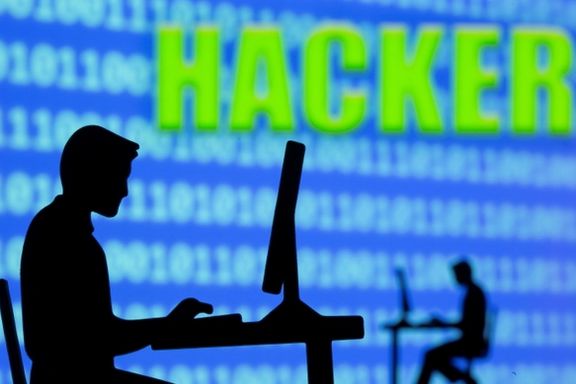
Cybersecurity experts have revealed that hackers affiliated with Iran launched a series of cyberattacks, compromising a total of 34 entities across three countries.
The attacks, between March 2021 and June 2022, were carried out by the state-sponsored hacking group known as Charming Kitten, primarily focused on Israel but also affected Brazilian and Emirati organizations.
According to a report released by cybersecurity firm ESET, the cyber operations were executed using a specific backdoor malware called Sponsor. The hacking group exploited a software vulnerability in Microsoft Exchange servers to gain access to their targets, delivering the malware to the victim's technical infrastructure.
The malware enables hackers to execute their commands on the compromised servers of the targeted companies and steal sensitive information.
Companies in various sectors, including financial services, engineering, manufacturing, technology, law, telecommunications, and more, were among the victims of the regime-backed hackers. Additionally, a healthcare company in Brazil also fell victim to the attacks.
No specific information has been provided about the Emirati organization targeted.
Researchers from ESET have emphasized that the companies were targeted due to their failure to update their software infrastructure.
The incident followed warnings issued in 2021 by several cybersecurity organizations in the United States, the United Kingdom, and Australia about the potential threat of Iranian regime hackers exploiting vulnerabilities in Microsoft Exchange servers.
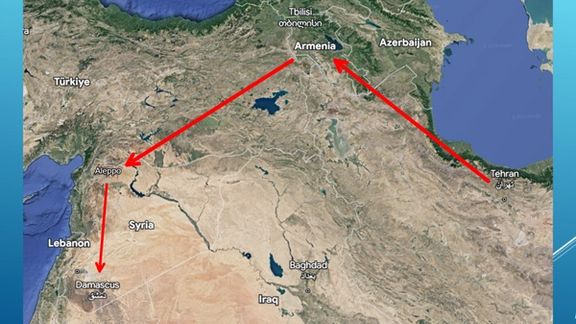
Amid simmering tensions between Yerevan and Baku, a new report has shed light on how Iran is making the best use of ties with Armenia to act against Israel.
Israel’s Alma, an institute focused on threats to Israel, released a report Wednesday elaborating on how Armenia functions as a transit point in the Islamic Republic’s air corridor route to Syria and Lebanon.
The report said Iran exploits Armenia not only to subvert Azerbaijan – an ally of Israel – but also to facilitate the Islamic Republic’s delivery of military equipment to Syria and then to Lebanon, underlining that “the Iranian effort in both arenas works against Israel.”
The Israeli institute pointed out that Iran supports Armenia in the conflict with Azerbaijan over the disputed Nagorno-Karabakh region, and that Revolutionary Guards (IRGC) operate in the area while tensions are high and may flare up again in the near future. “Iran is acting against Azerbaijan on multiple fronts, with the IRGC’s Quds Force conducting operations in asymmetric warfare, information warfare, and transferring weapons and military equipment to Armenia.”
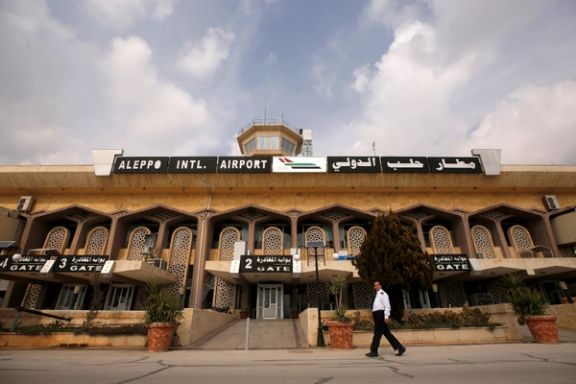
Referring to the late-August Israeli air attack on Aleppo International Airport – the third one this year, Alma said that Aleppo area, home to about 60,000 Armenians, is “a geographical anchor within the Iranian corridor to Syria, and the Aleppo airport serves as one of the entry gates of the aerial route as part of the weapons corridor from Iran to Syria and Lebanon.”
However, the report failed to note that after more than a decade of civil war, most Armenians who are Christians have fled from the city the city.
The report also mentioned Mehdi Sobhani, Iran’s former envoy to Syria who left his position in March to become the regime’s ambassador to Armenia. “The Iranian ambassador to Syria and Lebanon is normally a senior IRGC officer in charge of coordinating Iranian activity with Hezbollah and the regime of Syrian President Bashar Assad, rather than a diplomat appointed by the Iranian Foreign Ministry,” Alma said, claiming that the selection of Sobhani as the Iranian envoy to Yerevan reflects “the Revolutionary Guards’ high regard for Armenia.”
Alma referred to an earlier report released in December 2022 about the role of Iranian airline Mahan Air -- including its passenger aircraft -- in arms transfers from Iran to Syria and Lebanon on behalf of the IRGC’s Quds Force. It explained that after Iranians airlines were exposed as carriers of arms and forces for the IRGC, Armenian airline Flight Travel LLC was created in 2018 “as a front for Mahan Air’s Armenian headquarters.”
The US Treasury Department sanctioned Flight Travel LLC for aiding Mahan Air in transporting Shiite militia operatives from Pakistan and Afghanistan to Syria, the report underlined, claiming that “These aircraft most certainly carried not only militia operatives but also military equipment and weapons.”
“Ma’raj (Meraj), Qeshm Fares, Pouya Air, and Iran Air are all Iranian airlines that operate within the Iranian corridor and are linked to the IRGC’s activities using cargo and passenger planes," the report said, adding that they are all sanctioned by the US.
According to Alma’s investigation, three Armenian airlines and one Iranian are still operating between Iran and Armenia. “The deployment of Armenian planes could thwart intelligence surveillance of Iranian activity by making it more difficult to cover their tracks,” it said. Iran Air Tour – a subsidiary of Iran Air -- and Syrian airline Cham Wings play an important role in supporting the Iranian effort for the transfer of materiel and militias to Syria.
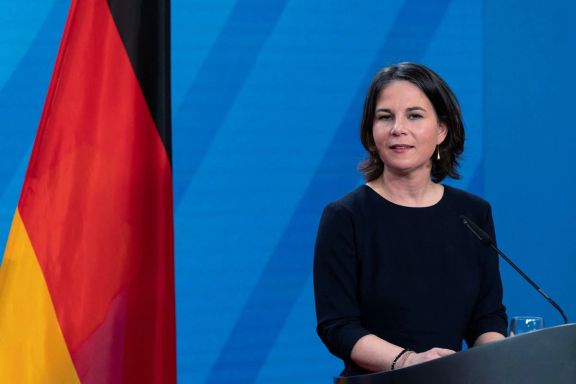
Germany's Foreign Minister Annalena Baerbock spoke with her Iranian counterpart Hossein Amirabdollahian about detained dual-nationals on Wednesday.
While officially, the Germany Foreign Ministry only said talks concerned "consular cases", it is believed they focused on the several German citizens currently incarcerated in Iran, including Nahid Taghavi, a dual German-Iranian citizen who was arrested in October 2020 and subsequently sentenced on charges related to "propaganda against the system."
Another high profile case is that of Jamshid Sharmahd, who has been sentenced to execution by the Iranian judicial system. Concerns loom large that this sentence may be carried out imminently.
Sharmahd was accused of leading the pro-monarchist group Kingdom Assembly of Iran, which has been linked to a fatal bombing incident in 2008 and alleged plots for additional attacks within Iran. Sharmahd has denied the accusations.
Diplomatic relations between Iran and Germany remain marked by tension. Foreign Minister Baerbock consistently voicing her concern over the violent suppression of protests in Iran. Meanwhile, the Iranian government has accused both her and the German government of interference in Iran's internal affairs.
It is the first direct exchange between the two countries' foreign ministers since the Munich Security Conference last year.
Iran's diplomatic hostage taking policy has been at the top of the headlines in recent weeks after $6bn of frozen Iranian funds in South Korea is being released in exchange for five US-Iranians, and in return, five Iranians held in the US.
